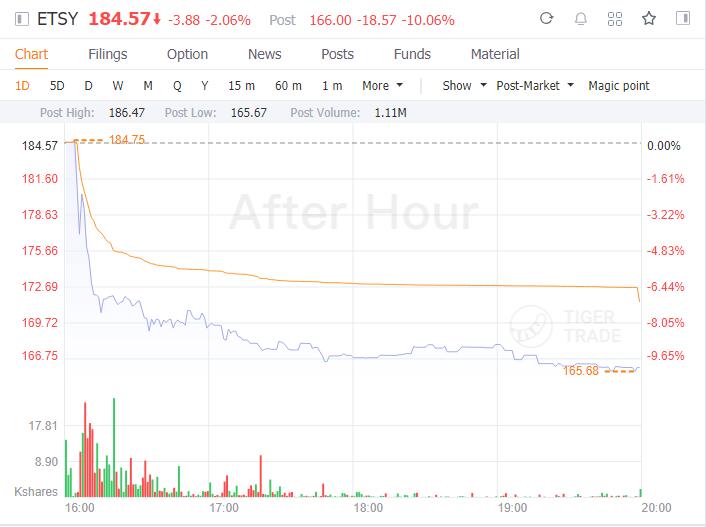Etsystock dropped more than 10% in after-hours trading on Wednesdayafter the company reportedfirst-quarter earnings results that surpassed analysts’ estimates, but warned that it expects the total sale of goods on its platform to slow in the second quarter as it faces tough comparisons to last year’s pandemic-boosted results.
- Earnings:$1.00 per share, adjusted, vs $0.88 expected
- Revenue:$551 million, vs $530 million expected
The online marketplace forecast second-quarter gross merchandise sales between $2.8 billion and $3.1 billion, representing growth of 5% to 15% from last year’s quarter. Analysts surveyed by Refinitiv were looking for gross merchandise sales of $2.95 billion. Gross merchandise sales is a closely-watched metric in the industry that measures the total value of goods sold on the site.
“We currently expect Q2 2021 GMS to decelerate along with the rest of e-commerce as we lap the tremendous 2020 growth rates,” Etsy CEO Josh Silverman said in a statement. “That said, we’ll keep the pedal to the metal in 2021 to continue to improve our customer experiences, make Etsy top-of-mind for the millions of buyers who have found Etsy for the first time or are relying on us now more than ever, and further invest in our very large market opportunity.”
Etsy didn’t provide guidance for the full year, citing uncertainty around the coronavirus pandemic.
Etsysaw its business boomearly on in the pandemic, as shoppers turned to it and other online retailers for goods amid physical store closures and the coronavirus raged, pushing many to stay indoors. Etsy, which sells an array of handmade and vintage items, experienced“overwhelming demand”for face masks.
That demand appears to be tapering off, now that the economy continues to reopen and vaccine rollout accelerates. During the first quarter, Etsy said it sold $72 million worth of face masks, down from a peak of $346 million in the second quarter of 2020.
E-commerce companies boosted by the pandemic, including, Etsy, eBay and Wayfair, continue to face intense pressure from investors to prove their businesses can continue to grow steadily in a post-pandemic world.
